What it’s really like living with dementia
Simply sign up to the Life & Arts myFT Digest -- delivered directly to your inbox.
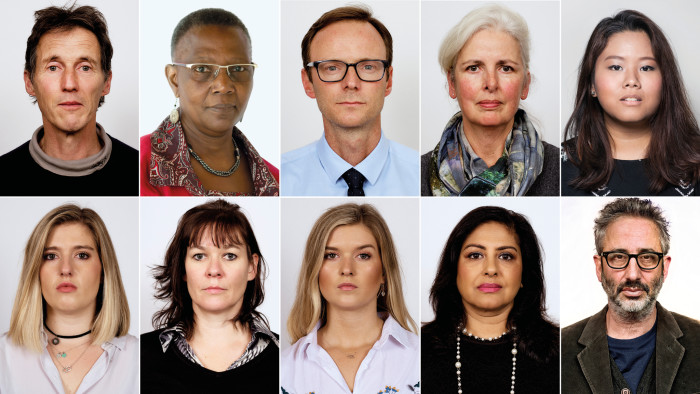
This story is part of the Financial Times Seasonal Appeal for Alzheimer’s Research UK, which is raising funds for pioneering research to develop new treatments for dementia. You can support the appeal here
Introduction
By David Baddiel
For a while now, I’ve been doing a one-man comedy show about my family. It is, in part, a manifesto calling for an end to the posthumous idealisation of people, on the basis that if all we are allowed to say about someone after they have died is that they were wonderful, we may as well say nothing. To really preserve the memory of someone we have loved and lost, it is my contention that we have to call up their weirdness, their madness, their flaws; because the dead, despite what we might like to think, are not angels. Which is why a lot of it is about my late mother, and a long erotic passion she held for a golfing-memorabilia collector, which led to our home life becoming extremely golf-centric.
But the other part of the show is about my father, who is not dead: he has dementia. He, too, is not idealised in the show. He has Pick’s disease, a frontal lobe dementia, the symptoms of which include uncontrolled swearing, inappropriate behaviour, irritation, mood swings, apathy and extreme impatience. When the neurologist told me that list of symptoms, I said: “Sorry, does he have a disease or have you just met him?” This is a man who once, on a family holiday to Devon, farted so badly in an antique shop that we had to leave. When we returned in the afternoon, it was shut, because the owner had been taken to hospital.
Stories about my dad are in tune with the show’s manifesto, because it is not just death, but its precursor, serious illness, which also sparks the great erasure of niceness. But, in a show about how you remember people, this creates a related issue, which is how much you can remain the person you once were without memory. Memory, after all, is where we store our personality. We say memory bank, because it is where we invest ourselves, it contains all our data, and dementia, surely, is the most complete hacker.
But, actually, my dad has not been stolen from us by dementia. Certainly, when the disease first hit, the opposite happened: it turned the volume up on his personality, transforming Colin Baddiel into a kind of Spitting Image puppet of himself. I try in the show to chronicle my father but also to challenge this homogenous idea of dementia, the one that has been handed down by film and TV, of old husks blanketed in chairs staring at white care-home walls. There are many types of dementia, some passive, some active, some inert, some disinhibited and whirling — it is a dark rainbow.

The main thing I’ve noticed about the audience reaction is how much the conversation goes on beyond the laughter. This is somewhat strange for me, as I’ve always held no truck with the idea that comedians have to get more serious as they get older: that Woody Allen mistake — he’s made a few, to be honest — that funny itself is not enough, and one must reach out past the giggles for gravitas. But when I say “always”, maybe what I mean is, before my mother died and my dad got dementia: before darkness intruded that much into my life.
Either way, people who have seen the show seem, in a strange way, liberated. When I meet them afterwards or they contact me on Twitter, they are keen to tell me their own stories, of funny things that their relatives with dementia have done. This became a great outpouring. One woman told me about her mum who, after her dad had been dead for 25 years, said he had come back to the house the other day. “I thought you were in heaven?” she said. “Yeah. It’s not all it’s cracked up to be,” he said. A man on the Tube said he had shown his father a news headline: “Drugs Found That Can Cure Dementia!” His father shook his head and said: “Yes, I’d have a long word with your GP before you take those.”
After an interview on the TV show This Morning, the presenter Ruth Langsford told me how, a few years back, a doctor had asked her dad, as a dementia test, who the prime minister was. “Blair!” said Mr Langsford immediately, leading everyone to think maybe he was fine after all. “Lionel!” he then added.
These stories are funny — and I have started to tell some of them in the show — but they are also, of course, sad and poignant. But this is the liberation, that having a parent who has dementia need not be surrounded in shame and silence; that there may be a way to break that silence through comedy. The truth is always complex, and the truth about dementia is that, because it makes adults into children, because it shatters inhibitions, because it distorts reality into surreality, it is both tragic and absurd. So the only way to hold those truths together is to laugh: a type of laughter that doesn’t diminish those with the disease, but that creates communality, a sense of not being alone, for those who care for and about them. One man told me he had seen the show four times. I asked him why. He said it was because he lived with his mother, who was incapacitated after a stroke, and it made him feel alive.
People who wish to tell off comedians are always saying that x or y — in which algebra, dementia can be included — is never a laughing matter. That, of course, is always wrong. Nothing is ever never a laughing matter, because there are many different types of laugh and not all of them are mocking. And if the laugh is mocking, you have to understand who or what is being mocked. I would argue that as well as providing succour, there are also elements of celebration and defiance in these stories people tell me about their relatives. When Mr Langsford shouts “Lionel”, and it’s funny, he is, whether he knows it or not, taking the piss out of dementia. He is robbing it of some of its terrible claws, not going gentle, but grinning into its silent night.
Dementia is a condition surrounded for too long by silence and shame. This should never have been the case and particularly makes no sense now, when it’s an epidemic. It is a serious thing, a deeply serious thing, and we need to talk about it seriously. But it may be that the best way to begin talking about it seriously is to laugh about it.
David Baddiel is a comedian and writer, and a supporter of Alzheimer’s Research UK
The younger patient: Richard Fried and Mary Whitaker
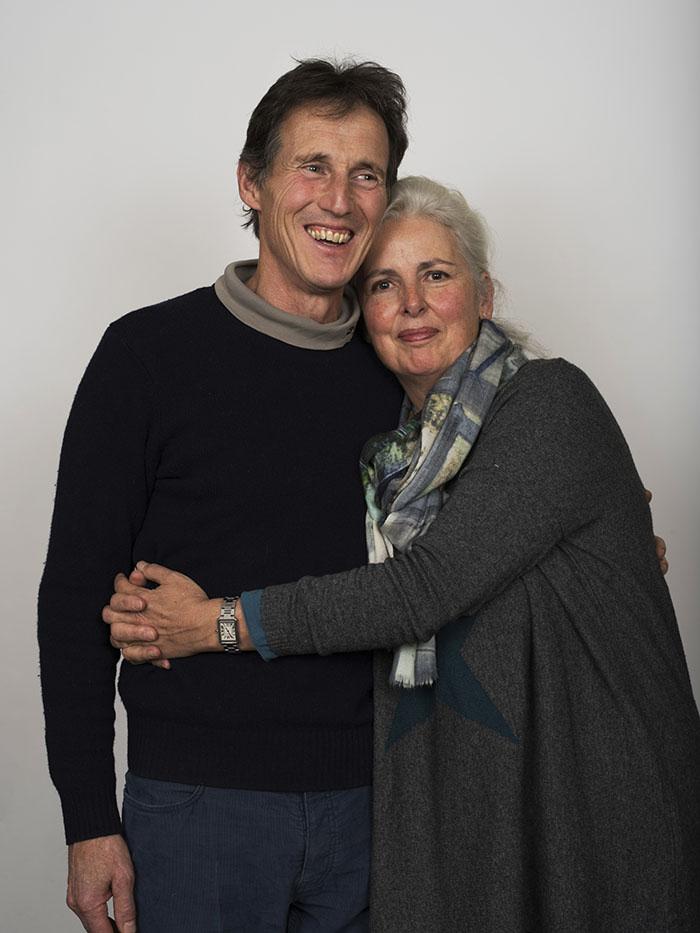
By Joshua Chaffin
It has been six months since Richard Fried joined a trial of a new medication to treat Alzheimer’s and, so far, he has not noticed any improvement in his condition. Nor does he expect to. “Not really,” shrugs the 57-year-old, who has the healthy glow of someone who has worked outdoors most of his life but whose mental flame is fading.
Such realism is ever-present as he and his wife Mary grapple with Alzheimer’s. They have moved to the country to simplify their lives and to reduce their costs. They try to enjoy each day. They are pouring their life savings into family holidays, including an upcoming trip to Japan with their grown-up children, because that is when Richard tends to be at his best.
“We’ve got to have some really good memories,” says Mary, tearing up. “I’m acutely aware of the future — and I don’t know if it’s a long way off or right around the corner.”
Alzheimer’s changed their lives years before Richard, a one-time shepherd and former landscape artist, was formally diagnosed. In 1998, the couple bought and converted a Victorian-era clinic in south-west London into an apartment and creative space for fellow artists and designers.
It all worked very well — until it didn’t. “I was getting more and more phone calls from Richard’s clients, saying, ‘Where’s Richard? He’s supposed to be here,’” Mary recalls. Bills went unpaid and the business began to suffer. Mary grew resentful.
Repeated visits to doctors and therapists did not bring a solution. “The go-to answer was, ‘It must be depression,’” she recalls. Richard tried anti-depressants. They didn’t work. In 2012, they sold the business to reduce stress and left London. That did not work either.
Finally, a doctor who had reviewed a scan of Richard’s brain called them to a meeting. It was New Year’s Eve, 2015. Of the moment he heard the diagnosis, Richard says: “To a certain extent I’d been thinking, ‘Maybe this is the case?’”
Mary was not prepared. “It took about six months not to feel physically sick,” she remembers. Then came the guilt. “It made me completely re-evaluate how I’d treated Richard, which is badly.”
Friends bombarded them with suggestions of unlikely miracle treatments. Coconut oil! They opted instead for a bright, minimalist cabin in the Kent countryside, stocked with Richard’s artwork and surrounded by chickens, a vegetable patch and fellow artisans. They have taken up pottery in the past year — to great success, judging by the pieces in the cabin.
“It’s very, very slow,” Mary says of the disease’s progression. “It’s micro-adjustments every day — and trying to stay sane.”
At times, Richard is charming and lucid, especially when recalling older memories. We spoke about a favourite museum in London and the UK’s housing shortage. There were also stretches during our meeting when Mary was talking about him and Richard, sitting beside her, listened as if hearing about a stranger. He looked tentative, and then bored. “I have good days and bad,” he says.
He can no longer handle the complexity of baking his favourite cake — he burnt three on Sunday, Mary reminds him. But when asked, he recalls its name without a pause: apple and dried fruit.
The carer: Shaheen Larrieux

By Isabel Berwick
In 2001, Shaheen Larrieux moved back to the UK temporarily during a break in her high-flying career. A chemical engineering graduate, with an MBA from the MIT Sloan School of Management, her most recent post had been as an executive at a US software company. “I wanted to be my own boss,” recalls Shaheen, who is now 53.
While she thought about her next move, Shaheen decided to help her parents with the family accountancy business. But she soon found that her mother Hosna, though apparently fit and well, was behaving uncharacteristically. Hosna, 54 at the time, was in charge of managing VAT for clients. “She had been to the bank thousands of times, but all of a sudden I had to go with her and do any little task she needed to do,” says Shaheen.
Her mother’s sudden dependence was hard to deal with, she recalls. “Three days turned into three months, which turned into three years. I was unaware of how much of my time was taken up with supporting my mum in everyday tasks — and you sort of lose your sense of self. Looking back, I think, ‘How did this go on for so long? How did I not know something was not right?’ But when someone is so young, you never imagine they have a brain disease.”
By 2008, Hosna’s condition had worsened but an initial test for dementia was inconclusive. “I was ignored by social services for a year, managing on my own,” says Shaheen. “Things were just very tough. You are slowly turning into the parent and the parent is turning into the child. That role reversal happens so slowly that you are unaware.”
It was only in 2013 that Hosna finally started to get the right diagnosis and care. She can no longer talk and Shaheen’s father, who was Hosna’s overnight carer, died earlier this year. “The stress never lets up — no two days are the same.” Yet, confident her mother is now being well looked after, Shaheen feels more able to focus on other things again. Through Alzheimer’s Research UK, she has started to work to raise awareness of dementia, and has given speeches at the House of Lords and the Bank of England. “I have created a new normal and a fulfilling life for myself out of the darkness,” she says.
The doctor: Professor Christopher Butler

By Harriet Fitch Little
Few doctors study philosophy but consultant neurologist Chris Butler thinks that those working with dementia patients would be well advised to. “It can seem a bit like a lost cause to be in this type of medicine, heartbreaking even, because you go into medicine to cure people,” he tells me when we meet in his fishbowl office at the John Radcliffe Hospital in Oxford.
Chris obtained his master’s degree in philosophy of mind in 2009. When he founded the Oxford Cognitive Disorders Clinic that same year, he had though through answers to the most troubling questions asked by dementia patients and their families. For example, is the self entirely lost when memory is extinguished?
With a nod to Heidegger, Chris explains why he thinks not. “[Our mind] extends out into our environment,” he says. “We offload a lot of memories on to others, which is why people in longstanding relationships can often manage surprisingly well despite quite advanced dementia.”
Yet he is also confident we are approaching the moment when the philosophical riddles of dementia lose their currency: discovery of a treatment for Alzheimer’s disease. “I hope it will happen before the end of my career,” says Chris, who is 45.
The prospect motivates him. The introduction of treatment will at last banish the public’s perception that dementia is a mental infirmity rather than a brain disorder; right now, it’s a condition so stigmatised that Chris’s patients sometimes tell strangers that they’ve had a stroke rather than admit to it.
But he worries that dementia has been under the aegis of old-age care for so long that few neurologists have specialised in it. What happens when, all of a sudden, hundreds of thousands of people want to access what will probably be an aggressive, invasive treatment that requires the personal attention of brain experts? “I think the medical profession is potentially facing a bit of a problem.”
It’s a reckoning he is ready to face. For now, Chris must greet each newly diagnosed person with the same limited reassurance. “There’s a lot we can do,” he tells them, and then begins a difficult, inadequate conversation about prolonging life and alleviating symptoms.
In the future, he hopes to be able to say and do a lot more.
The daughters: Ciana (left) and Chrissi Ayre
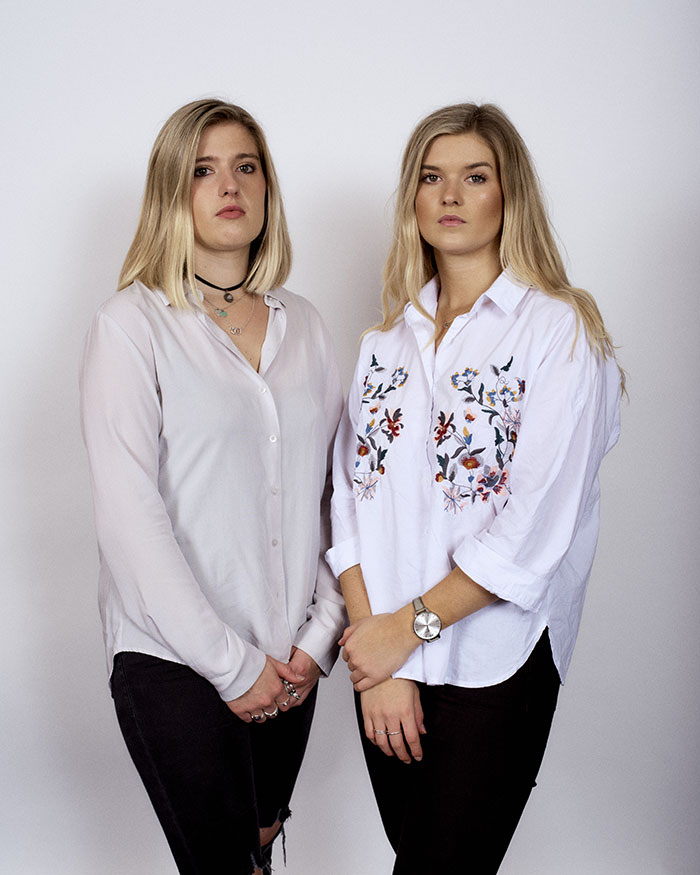
By India Ross
“Six feet two inches,” says Ciana Ayre, glancing skyward. “When you’re a kid, that seems gigantic.”
It’s been four years since Ciana, 22, and her sister Chrissi, 20, last looked up at their father, but the Mike Ayre of their memory is still present; a gentle giant — “BFG” — whose dry sense of humour endured throughout the disease that should have robbed him of it.
“He’d always make jokes,” recalls Chrissi. “The morning after he got diagnosed, Mum went, ‘Can you go and make a cup of tea?’” His response: “I’ve forgotten how to.”
Mike was 46 when he was diagnosed with Alzheimer’s; his daughters just 13 and 11. The family had recently relocated to the UK from Vietnam, where Mike was working as an actuary, only to see their lives upended by a disease they knew little about. “I didn’t have a complete knowledge of it at 11 years old. I don’t think anyone would,” says Chrissi. “I would say to my friends, ‘My dad has Alzheimer’s’, and they’d just be like, ‘Oh, OK.’”
Today they speak about what the family went through with a wrenching pragmatism. “There was no hiding from it,” says Ciana. “We knew he was going to die, he was going to forget us, he wasn’t going to be there at the important moments.”
Mike died in 2013, aged 51. The sisters are closer than ever. “There’s an unspoken sympathy and understanding you have of each other,” says Ciana. “You don’t need to talk about it as much — you can just kind of sense it.”
Both are coming towards the end of their university studies — Ciana in interior design; Chrissi in real estate and planning — and careers beckon: Chrissi has already secured a job in chartered surveying. After what they have experienced, their next steps are unlikely to faze them. “Alzheimer’s has been part of our lives for 10 years,” says Ciana. “So when people go, ‘How do you cope?’ Well, a) I don’t want to be miserable every day, and b) there’s just so much going on.”
The older patient: Paula Wolfert
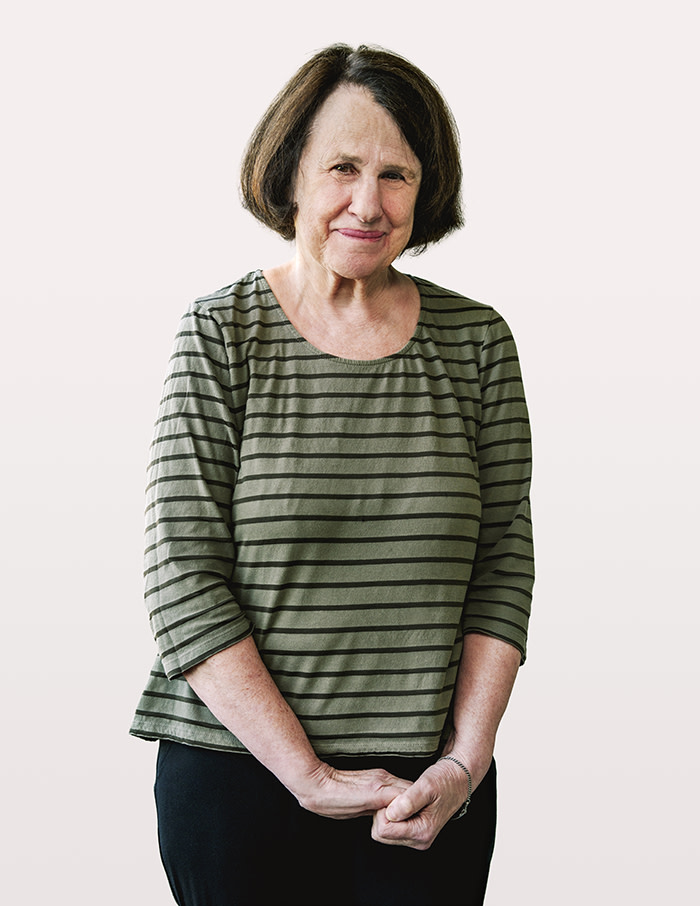
By Leslie Hook
As the sunshine sweeps through the tall windows of her home in Sonoma, California, Paula Wolfert is fixing a cup of coffee and running through her schedule. She’s meeting a support group in the afternoon, then at the dentist tomorrow, then on a conference call. This organised and energetic 79-year-old has already prepared her food in advance for the next few days, so that she can still eat while going from one activity to the next.
Paula does not cook quite the same way she used to, however. An acclaimed chef and cookbook author — she has five James Beard Award medals tucked away in a kitchen drawer — she became famous in the 1970s as the beatnik chef who introduced Moroccan cooking to the US. She published her first book, Couscous and Other Good Food from Morocco, while living in Tangier in 1973, and it was later entered into the Cookbook Hall of Fame.
Her kitchen today is still full of the clay pots used in Moroccan cooking. But Paula doesn’t use them any more. In fact, she doesn’t cook any of her old recipes. Instead, her diet is focused on one thing: battling the dementia with which she was diagnosed in 2013. “Good food is family, life, love, it brings back memories,” she says. “But now I don’t think of it that way, I’m making food now for health. And I’m doing something else — I’m fighting now.”
When she learnt that she had dementia, she immediately started doing research, she tells me. As if to underline the point, she has brought a stack of books to the dining-room table for our interview, and explains how they helped her understand the illness. There’s The End of Alzheimer’s by Dr Dale Bredesen (“he is brilliant,” she says), Fat for Fuel by Dr Joseph Mercola, and The Plant Paradox by Dr Steven Gundry. Since her diagnosis, she has adopted a ketogenic diet — low in carbs and high in fat — and pulls out her iPad to show me a picture of a kale salad with Parmesan and walnuts that she made recently, following one of Gundry’s recipes. “I enjoy cooking other people’s recipes,” she says.
There’s also a copy of her biography, Unforgettable, which she flips through as a sort of aide-mémoire. Paula has mixed dementia, which she believes is linked to a brain surgery she had as a young woman. A stranger having a casual conversation with her would not notice anything awry. But, she says, some things are getting harder. “I run out of words,” she confides. “I used to have a huge vocabulary.” Arithmetic and writing are also increasingly beyond reach.
But dementia has done nothing to dull Paula’s proactive spirit. She rattles through the list of Alzheimer’s support groups she attends (she says these are hugely helpful). She also explains that she’s on a mission — to help people confront their own dementia in a timely manner. “People at my age are usually in denial, and stay in denial until it is too late,” she says emphatically. Even her own friends, she adds with a note of sadness, will privately tell her of memory problems but avoid seeing a doctor. “They are in denial,” she says.
While a diagnosis of dementia can be devastating, Paula insists it’s better to face up to it sooner — so that you can do everything possible to slow its progression. “There’s no point in crying, it doesn’t do any good,” she says.
The academic: Professor Bébène Bandzouzi

By Simon Kuper
A decade ago, almost nothing was known about Alzheimer’s in Africa. Were sub-Saharan Africans less susceptible to the disease than people in the developed world, as one study in Nigeria had hinted? Bébène Bandzouzi, a neurology professor in Congo-Brazzaville, set out to find an answer. She got involved in field research, especially in her own country.
“We have a different culture than the west, very communitarian,” she says. “I thought that might protect us. But we found that prevalence was almost at the level of developed countries.” Being malnourished or rural raised people’s risk of dementia. So, she suspects, do traumatic experiences — common in Congo-Brazzaville. Alzheimer’s Disease International estimates that 2.13 million people in sub-Saharan Africa lived with dementia in 2015, “with numbers projected to nearly double every 20 years” as Africans live longer.
Almost nothing has been done about this crisis, says Bébène. “The state has too much to do. Infectious diseases haven’t been dealt with yet.” In practice, African women are left to care for relatives with Alzheimer’s. But, Bébène says: “Before there were big families, with maybe 50 people. Now we live more in the nuclear family, because the family is more urbanised. Women are out earning a living.” If they also have to care for a person with dementia — sometimes for 15 hours a day — the result can be burnout or abuse. The sick person risks being treated as a “useless mouth”.
Then there’s ignorance. Even many local health workers don’t know what Alzheimer’s is, says Bébène. Local languages have no word for the disease. (Of course, nor did European languages until the German doctor Alois Alzheimer came along.) And local traditions of medicine struggle to make sense of a chronic illness that cannot be cured.
At best, says Bébène, people in her country view Alzheimer’s as normal ageing. At worst, they accuse those who have it of being possessed by demons. An old man who wanders at night into his daughter-in-law’s room, say, will quickly fall under suspicion. “People tell themselves, ‘It’s not normal, it’s a demon.’ The accusation of sorcery is the ultimate form of stigmatisation. Trials for sorcery are maybe more frequent in families with less money.”
Though freshly retired from her university post, Bébène continues working to inform her compatriots — especially the influential clergy — about Alzheimer’s. What gives her heart is that she fought much the same battle in the 1980s, when the issue was ignorance and prejudice about HIV. Over time, the church came around, and people with HIV stopped being stigmatised. Today they get treated for free. The dream is that one day that will happen with Alzheimer’s.
The campaigner: Melissa Chan
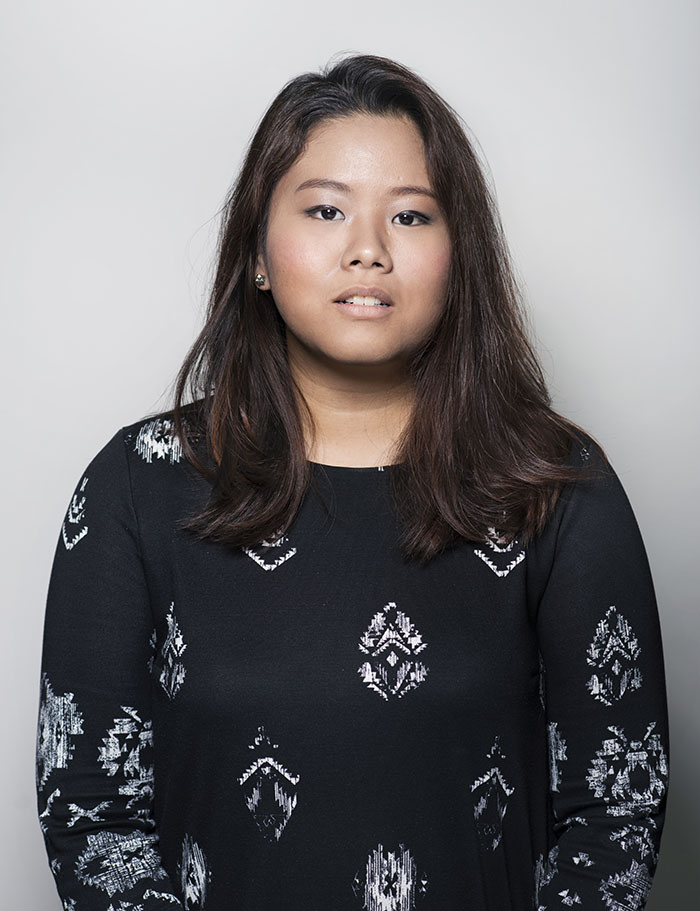
By Rebecca Watson
The first time Melissa Chan heard the word “dementia” was when her 54-year-old father was diagnosed with it. She was 14 and his illness soon became the family’s best-kept secret. “When friends came over” to their home in Singapore, she says, “we’d put my dad in the other room.”
Dementia in Asia is steeped in stigma, explains Melissa, who’s now 27. The direct translation from Mandarin of “dementia” is “dull-witted and old”. “There is little education and awareness,” she says.
When her father passed on in 2014, 10 years after his diagnosis, Melissa decided to tackle the issue of public awareness in young Singaporeans. She set up Project We Forgot, a network that shares stories and allows caregivers to connect. “I started it because of my dad,” she says but, as people from across the world started contributing, “it became no longer about him”.
Join Dementia Research
Anyone can help. Click here to find out how
The latest part of her campaign took the form of the We Remember! Festival, organised with the World Young Leaders in Dementia, with caregivers speaking about their experiences. Attendees were encouraged to use a dementia simulator, which distorts the user’s balance and sight, meaning that even simple tasks, such as pouring a glass of water, become difficult or impossible to complete. “It’s not exactly what people with dementia go through”, Melissa explains, “but [it provokes] the kind of emotions that come about.”
The silence around dementia in Asia has cultivated a false perception that it isn’t rife there, she says. Yet it is estimated that the number of people with dementia in the Asia-Pacific region will increase from 23 million in 2015 to almost 71 million by 2050, according to Alzheimer’s Disease International. It doesn’t help that “if you do a quick search of dementia online, the faces are all from the west,” she says. “I am really trying my best to put as many Asian faces out there. People need to know that this happens here.”
The scientist: Dr Tammaryn Lashley
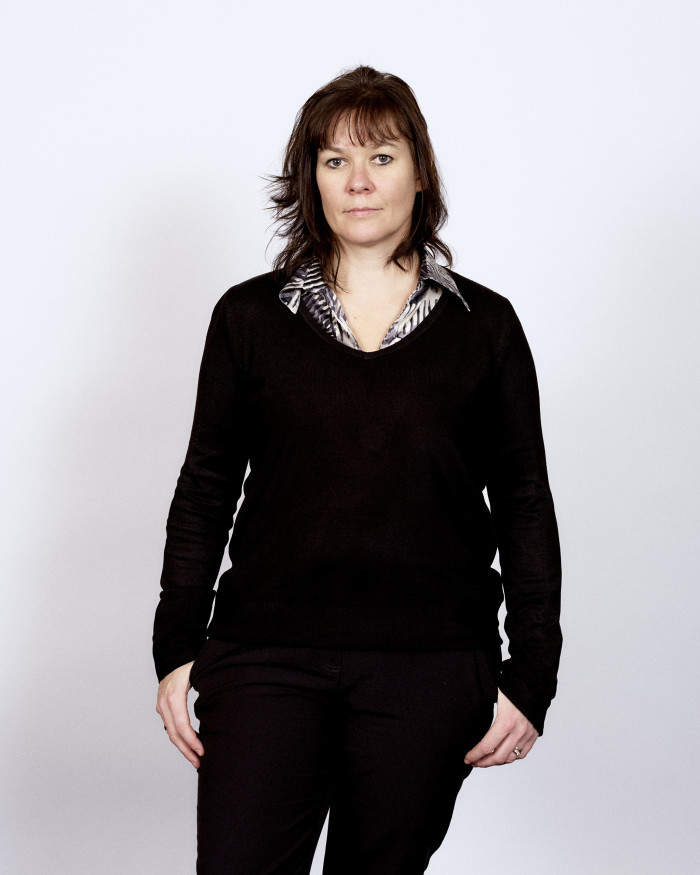
By Neville Hawcock
Some institutions trumpet their presence; others are more unassuming. The Queen Square Brain Bank, where Dr Tammaryn Lashley carries out her research, falls firmly into the latter category. If the new Francis Crick Institute, at nearby St Pancras, is an eye-grabbing cathedral of biomedical science, the QSBB, in a stolid mid-20th-century Bloomsbury block, is a thoroughly inconspicuous chapel.
Yet the work that goes on there is no less vital. Part of University College London’s Institute of Neurology, the facility stores some 2,000 brains, many donated by those who died from brain disorders. They are an invaluable resource for researchers not just in the UK but worldwide: tissue samples are regularly dispatched overseas.
Tammaryn’s specialism is frontotemporal dementia, a less common condition that affects behaviour and speech rather than memory. With funding from Alzheimer’s Research UK, the 43-year-old neuroscientist is investigating the rogue proteins that kill brain cells and trying to understand how they correspond to clinical symptoms. The hope is that this will lead to more accurate diagnoses during patients’ lifetimes, and hence more appropriately targeted treatments.
A “science geek” since her school days in the West Midlands, Tammaryn admits her choice of career is a “conversation-stopper”. “People don’t know how to react when you say you cut up human brains for a living.” But she is palpably enthusiastic about it. “Do you want me to show you a picture?” she asks, cheerfully whizzing through a slideshow of microscope images on her computer like so many neurological holiday snaps. “There’s so much to learn from looking at the human brain,” she says. “So much we don’t know.”
Apart from her research, there are lectures to prepare and PhD students to supervise, as well as constant pressure to secure funding for her team. The field, she says, is developing quickly, with some of the proteins causing frontotemporal dementia having only recently been identified.
She has a friendly manner but a steeliness is discernible. How else would that daunting to-do list get done? “Poor planning on your part does not constitute an emergency on my part” reads a sign above her desk, due warning to any ill-prepared students. Due warning to dementia too, perhaps: when Tammaryn says that “we can beat these diseases”, I’m inclined to believe her.
The family: The Whitneys
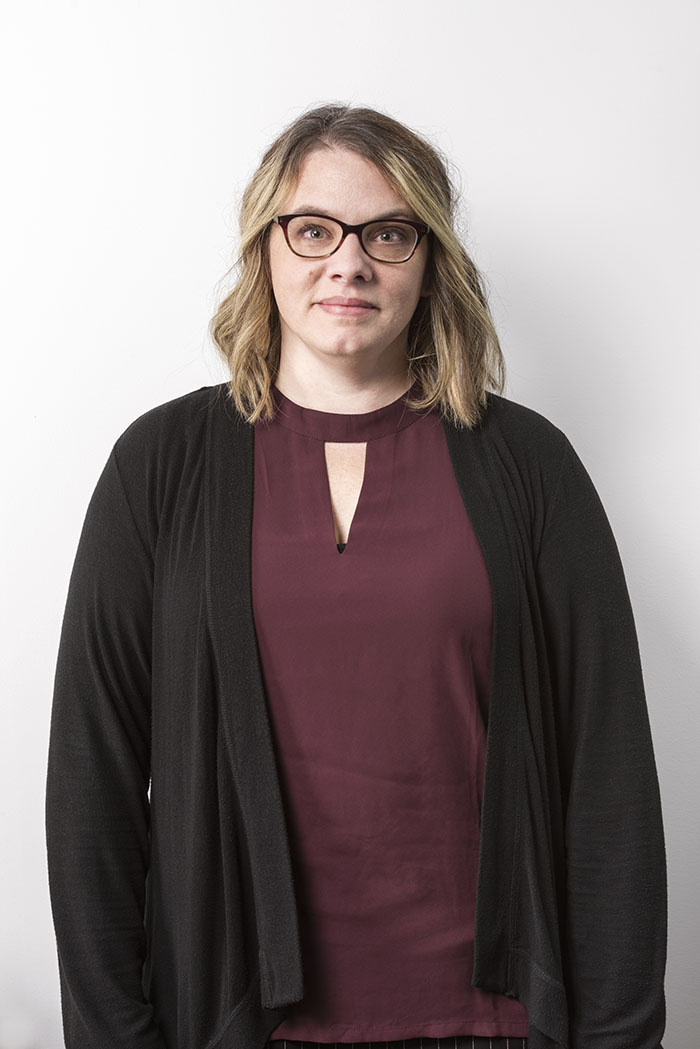
By David Crow
When Doug Whitney turned 55 in 2004, his family thought they had been spared from a genetic curse. On his mother’s side, 10 out of 14 siblings had developed Alzheimer’s at about the age of 50, having inherited a rare mutation in the Presenilin-2 gene. People with this alteration are all but certain to be afflicted with an aggressive and early form of the illness, so when Doug’s birthday came and went, the Whitneys believed they had escaped.
The high incidence of Alzheimer’s in the Whitney lineage was of great interest to scientists, and in 2010 Doug enrolled in a research study, where he took a genetic test. Contrary to his assumptions, he had inherited the alteration after all but is one of just 2 per cent of people with the mutation that do not develop the disease. His thoughts immediately turned to whether he had passed it on to his children, Karen and Brian.
Karen’s test result was negative but, much to the Whitney family’s horror, Brian had inherited the mutation, meaning he has a 98 per cent chance of developing early onset Alzheimer’s.
“It was gut-wrenching,” says Brian, now 45, as he recalls his reaction to the test result. “I felt a fair bit of guilt having brought a daughter into this possible future. I was shocked at first, got a little angry and then really felt guilty.”
Doug, who was in the room when Brian was given the results, broke down. “He’s a guy who’s quiet, reserved and even-keeled. But when the genetic counsellors told me my status, he started to cry. I couldn’t handle it,” says Brian.
For Karen, now 43, relief at her own results was quickly displaced by the realisation that her elder brother would probably become ill. “I think it’s natural to have a survivor’s guilt, that somehow you were the lucky one and your sibling is not.”
Brian and his wife have decided not to tell their daughter he might get sick, and have been advised to delay any genetic testing on her until she is an adult. “She’s seven now, so she doesn’t quite understand what Alzheimer’s is, but it’s going to get hard for her and she’s going to be very aware of it as she grows up,” he says.
With no approved treatments that can halt or reverse Alzheimer’s, there is very little that Brian can do apart from wait in hope. He has taken out insurance policies to cover his life and the costs of care, and tries to keep his brain active with sudoku puzzles and the mental arithmetic he uses in his job as a tile-setter in Washington state.
For the past six years, he has also been receiving monthly infusions of an experimental drug being developed by Roche, the Swiss pharmaceuticals group. The clinical trial at Washington University School of Medicine in St Louis, known as the Dian study, is trying to determine whether the disease can be arrested if drugs are given to patients before they develop signs of the illness.
If Brian makes it to 55 without developing the disease, he thinks he will be able to relax, safe in the knowledge that he also inherited the unknown piece of genetic code that saved his father’s life. “That’s my magic number, it’s the age at which my uncle died,” he says. “My biggest fear of all is being at the age of onset and having this realisation that something is wrong,” he adds. “My grandmother’s generation didn’t really know what was wrong, they didn’t understand it. But for me and people in the [Dian] study, we are acutely aware.”
• Your gift will be doubled If you donate to Alzheimer’s Research UK through the FT’s Seasonal Appeal, Goldman Sachs has generously agreed to match it up to a total of £300,000. Click here to donate now
Follow @FTMag on Twitter to find out about our latest stories first. Subscribe to FT Life on YouTube for the latest FT Weekend videos
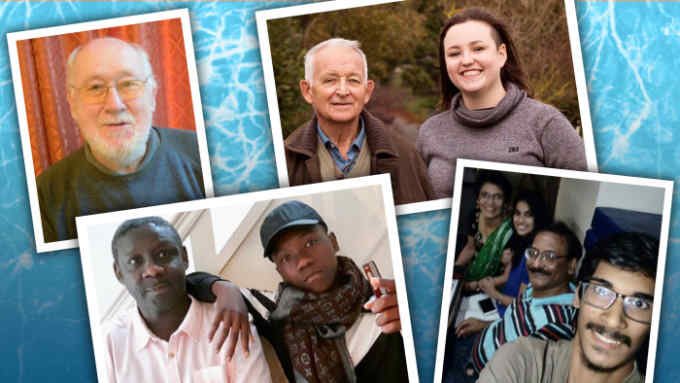
Comments